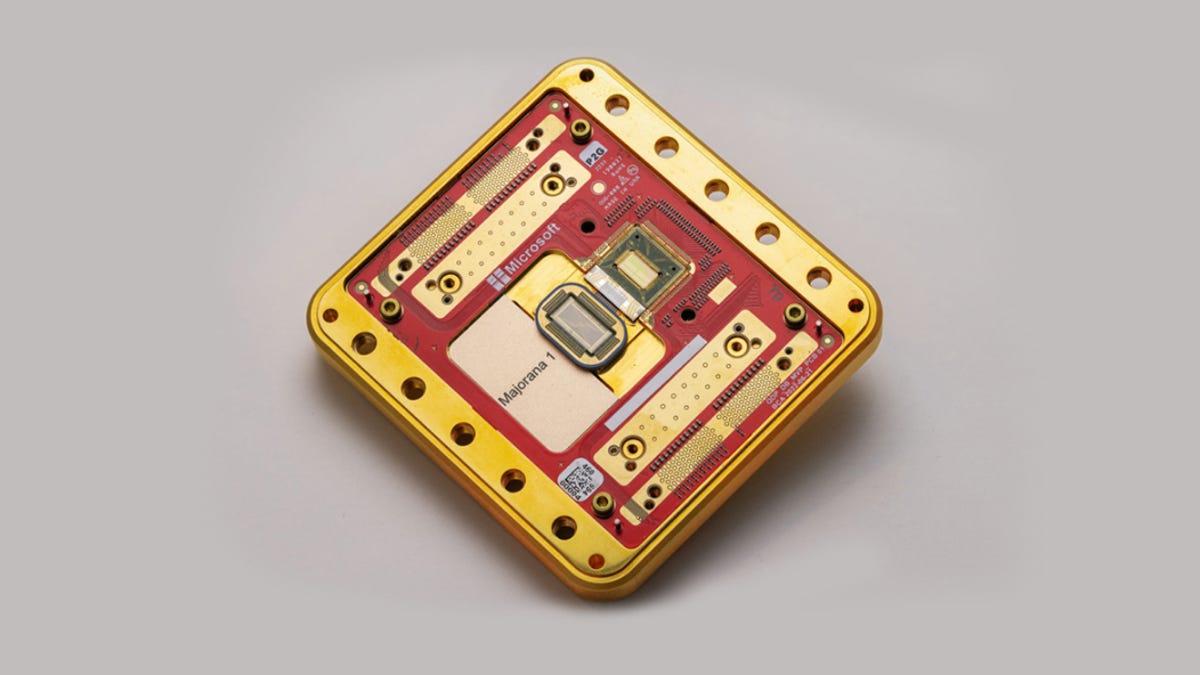Tech
Microsoft Says It’s Made a Major Quantum Computing Breakthrough With New Chip

The Race to Shape the Future of Computing
The race to define the future of computing is intensifying, with Microsoft announcing a groundbreaking achievement in quantum computing. This breakthrough could pave the way for quantum technology to tackle some of the most complex challenges facing science and society today. Microsoft’s researchers have spent 17 years developing a new material and framework for quantum computing, which powers its cutting-edge Majorana 1 processor. The company claims this is the world’s first quantum processor powered by topological qubits, the fundamental units of quantum computation. The research was published in the prestigious journal Nature, marking a significant milestone in the field.
Microsoft’s Breakthrough in Quantum Computing
Traditional computers process information using bits, which are binary (0 or 1). Quantum computers, on the other hand, use qubits, which can exist in multiple states simultaneously, allowing for vastly faster processing of complex tasks. However, qubits are notoriously unstable, leading to errors that hinder their practical application. Microsoft’s innovation addresses this challenge with a new material called a topoconductor, made from indium arsenide (a semiconductor) and aluminum (a superconductor). This material enables topological qubits, which are more stable and less error-prone than traditional qubits. The Majorana 1 chip is designed to scale up to 1 million qubits on a single, compact chip, a feat that could revolutionize the field.
The Significance of Microsoft’s Achievement
The potential impact of Microsoft’s breakthrough cannot be overstated. Quantum computers could solve problems that are currently unsolvable for traditional computers, revolutionizing fields such as medicine, energy, and artificial intelligence. For example, quantum computers could simulate molecular structures to develop new drugs or optimize complex systems like energy grids. Microsoft’s achievement is particularly significant because it addresses one of the biggest challenges in quantum computing: scalability. The Majorana 1 processor is not just a proof of concept but a practical step toward building a fault-tolerant, scalable quantum computer.
The Competitive Landscape in Quantum Computing
Microsoft is not alone in the race to advance quantum computing. Other tech giants, including Google, IBM, and Intel, are also making significant strides. In December, Google unveiled its latest quantum computing chip, called Willow, which can perform a complex calculation in just five minutes. This task would take one of today’s fastest supercomputers longer than 10 septillion years to complete. While Microsoft’s achievement is impressive, the competition is fierce, and the field is evolving rapidly. The race to build a practical, scalable quantum computer is not just about scientific prestige; it’s about unlocking new possibilities for humanity.
The Future of Quantum Computing
Microsoft’s progress is part of a broader effort to make quantum computing practical for real-world applications. The company is working with the U.S. government’s Defense Advanced Research Projects Agency (DARPA) on an initiative to accelerate the development of quantum computing. Microsoft has stated that it is on track to build the world’s first fault-tolerant, scalable quantum computer within years, not decades. This ambitious goal is a testament to the company’s confidence in its technology. If successful, this could lead to breakthroughs in fields ranging from cryptography to climate modeling.
Conclusion: A New Era for Computing
Microsoft’s breakthrough in quantum computing marks the beginning of a new era for technology. The company’s innovative use of topological qubits and the development of the Majorana 1 processor could pave the way for solving some of the world’s most pressing challenges. While the road ahead is still long, the progress made so far is a reminder of the incredible potential of quantum computing. As Microsoft and other companies continue to push the boundaries of what is possible, we can expect to see transformative advancements in the coming years. The future of computing is here, and it’s more exciting than ever.